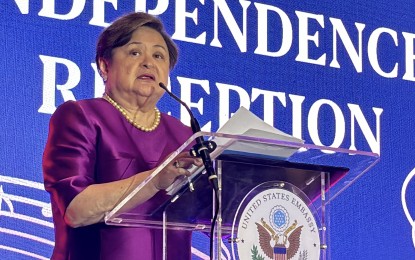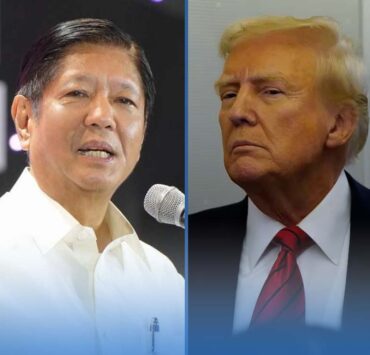New DFA chief cites way forward despite ‘worrisome’ China stance

The recently appointed chief of the Department of Foreign Affairs (DFA) on Friday said China’s continuing refusal to recognize the 2016 arbitral award that invalidated its claims to almost the entire South China Sea remained a “worrisome” issue for the Philippines nine years since the historic ruling.
In a speech delivered just over a week into her new post, Foreign Secretary Teresa Lazaro framed the significance of Manila’s legal victory while explaining how dealings with Beijing on the maritime issue can move forward.
The ruling, she said, was “a telling reminder to the world that all countries regardless of size, might or capacity must meet their duties and obligations” under international law.
“The award not only sets reason and right in the South China Sea, but is like a lighthouse that guides how maritime matters and concerns in the region ought to be addressed,” Lazaro said at a conference held by the think tank Stratbase to mark the June 12, 2016, ruling.
But nearly a decade later, she said, “It is worrisome that China has continued to reject the binding arbitral award and persists with illegal, coercive, and aggressive actions under cover of a revisionist, self-serving interpretation and application of international law, particularly Unclos (United Nations Convention on the Law of the Sea).”
3 channels
Lazaro took her oath as DFA chief before President Marcos on July 1, succeeding Enrique Manalo who returned to his previous post as the country’s permanent representative to the United Nations.
Despite China’s rejection of the ruling, Lazaro said, the Philippines can protect its rights, uphold international law and defend a rules-based order in various venues.
She said Manila would continue to use the Foreign Ministry Consultations, the Bilateral Consultation Mechanism on the South China Sea, and the bilateral Consular Consultations Mechanism with China in order to maintain dialogue at the appropriate official levels.
“Our effective diplomacy with our Chinese counterparts has resulted in several pragmatic solutions and positive outcomes, such as the Provisional Understanding on the rotation and resupply (Rore) missions to the BRP Sierra Madre,” she said, referring to the grounded ship now used as a military outpost in the West Philippine Sea (WPS).
‘Nonsensitive areas’
“And we are now in the process of developing nonsensitive areas of cooperation between our coast guards and our scientific and technical institutions,” said Lazaro, who earlier served as chief negotiator in talks with China on the WPS issue.
“If we can engage our most challenging relationships, then surely we can produce effective strategic outcomes with our allies, partners and other like-minded countries. We are constantly looking to create a tapestry of multilateral and bilateral engagements that bolsters our positions and broadens our capacities,” she said.
“Being on the right side of the rules-based order and international law makes it easier for others to join us in taking a stand and forming a tight bond that can withstand illegal and unfounded claims and aggressive actions at sea,” Lazaro added.

















